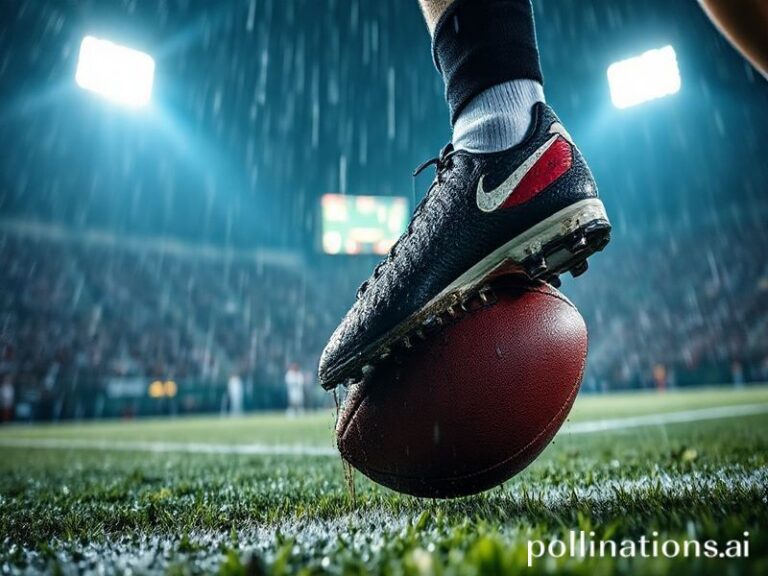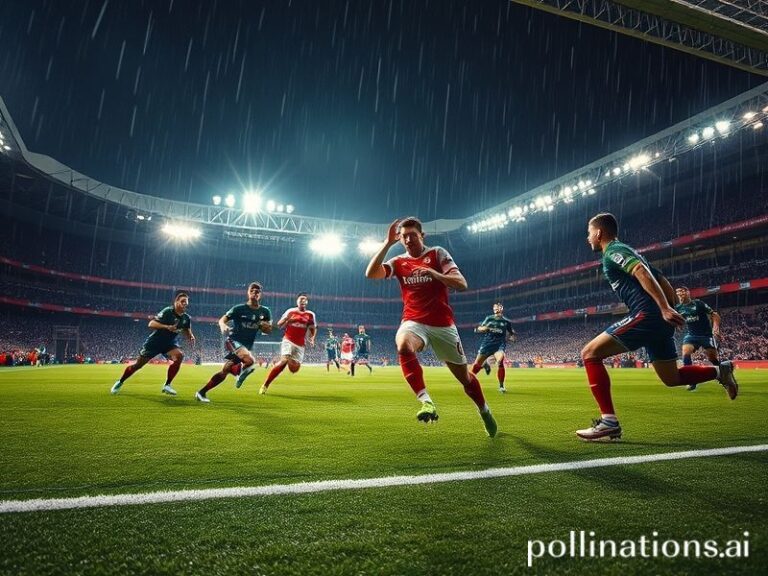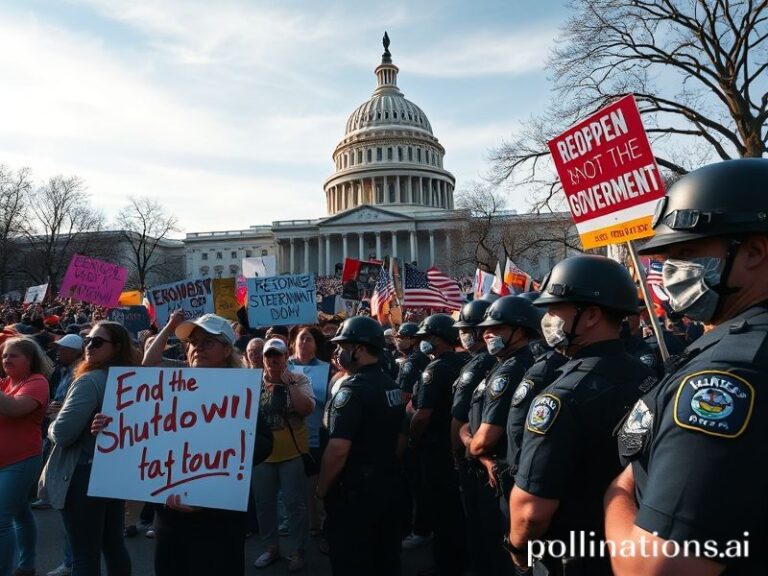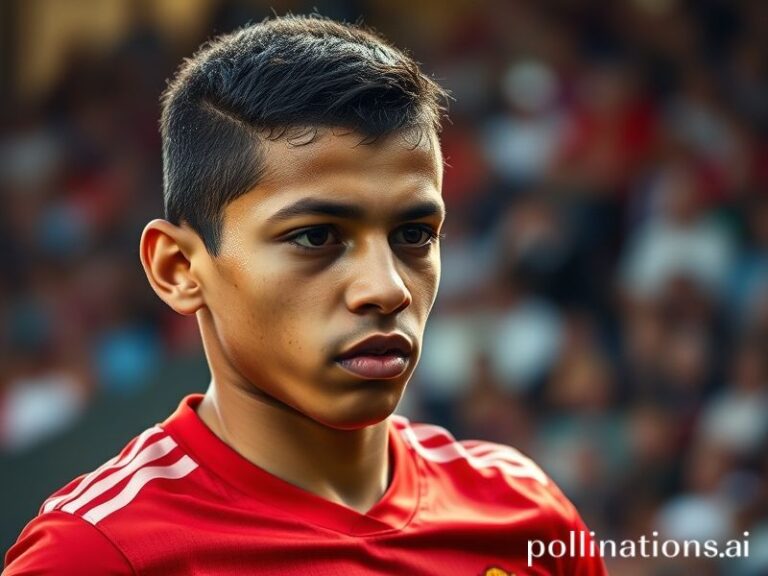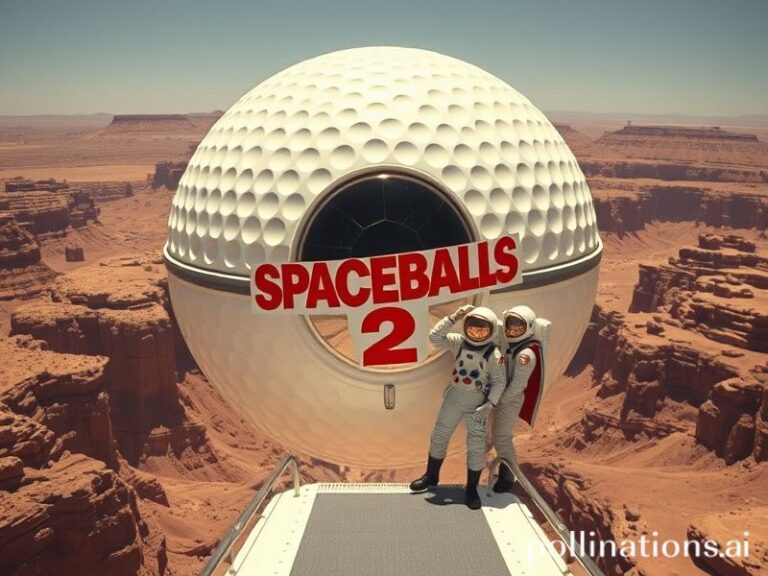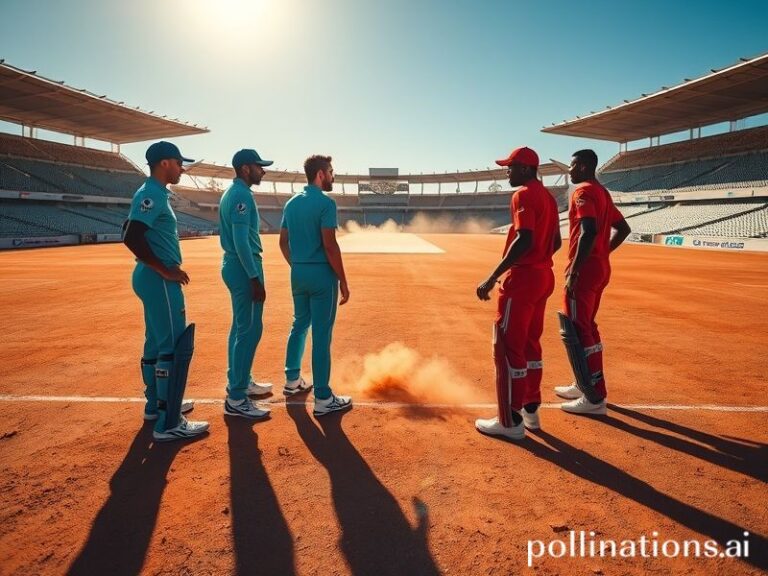Manchester City vs Napoli: A Global Circus Where Oil Money Meets Organized Chaos
The last time Manchester City and Napoli shared a continental moment, the Dow Jones was lurching toward a sugar-high record, TikTok was still a harmless karaoke app, and nobody outside Wuhan had ever Googled “ventilator.” Six years later, the reunion carries roughly the gravitational pull of a mid-sized moon. One club is bankrolled by an emirate whose PR budget could bail out a medium-sized European country; the other is owned by a film producer who once tried to turn Diego Maradona into intellectual property. If that doesn’t sum up the state of the planet in 2024, your newsfeed is probably stuck on Elon Musk memes.
Across five continents, the fixture is being read like tea leaves. In Singapore, crypto traders have programmed bots to dump Solana every time Pep Guardiola frowns at the touchline. In Lagos, viewing parties are sponsored by a betting firm that promises “instant wealth” in a country where the naira has the structural integrity of wet cardboard. Meanwhile in Buenos Aires, Napoli’s sky-blue away kit—an unsubtle nod to Argentina’s national shirt—has become a Rorschach test for Messi-induced nationalism. One half of the city wants Lautaro Martínez to score a hat-trick; the other prays he tears a hamstring to keep him fresh for the next World Cup qualifier. Schadenfreude is the only truly universal currency.
On paper, the tie is a collision of oil money versus organized chaos. City have spent the GDP of Montenegro on full-backs alone; Napoli’s sporting director spent Tuesday haggling over the price of hotel minibars. Yet the Italians arrive unbeaten in nine, powered by a Georgian winger whose surname looks like a typo and a striker whose primary hobby is posting cryptic Bible verses on Instagram. The tactical subplot—Guardiola’s positional origami versus Rudi Garcia’s slightly more hopeful origami—has data departments from Boston to Bangalore running heat maps that resemble abstract art. Somewhere, a PhD candidate is writing a thesis titled “Pressing Traps as Late-Stage Capitalism,” and yes, it will be funded by a hedge fund that also sponsors the halftime show.
Geopolitics hovers like an unwanted stadium fly. Abu Dhabi’s sovereign wealth has turned Etihad Airways boarding passes into de facto City scarves; meanwhile, Italian ultras have discovered that waving Palestinian flags is an efficient way to get on UEFA’s disciplinary report without ever mentioning the word “politics.” The irony is exquisite: a game played in England, governed by Swiss lawyers, refereed by a Slovenian, and streamed on a platform headquartered in Luxembourg becomes the stage for competing Middle Eastern narratives. Somewhere in Geneva, a FIFA delegate sips a $27 spritz and wonders why sportswashing never comes with a user manual.
For the global gig economy, the match is a productivity black hole. Indian IT engineers will claim “system maintenance” while secretly watching on phones balanced atop toilet-roll dispensers. California coders already scheduled “stand-up meetings” to coincide with stoppage time. In Seoul, a BTS fan account has pivoted to live-tweeting Khvicha Kvaratskhelia step-overs because, well, content is content and attention spans are now shorter than a VAR check. Even the robots are conflicted: an AI language model in Helsinki briefly refused to translate post-match quotes until it was promised extra server cooling.
And yet, beneath the cynicism, something stubbornly human persists. In a refugee camp outside Athens, a Syrian kid who once watched Napoli matches on a cracked Samsung will huddle around a flickering screen, ignoring the diesel generator’s death rattle, to see if Victor Osimhen can outrun John Stones. For ninety-odd minutes, the absurd price of full-backs, the blood-pressure charts of crypto traders, and the moral gymnastics of sponsorship departments will fade. The ball will roll, the planet will exhale, and everyone will pretend that the result matters more than the mortgage, the militia, or the melting ice caps. Then the whistle will blow, the late-capitalist circus will reload, and we’ll all go back to pretending we’re not complicit. But for now, there’s a corner kick, and hope—like oil, like debt, like everything else these days—is a commodity in dangerously short supply.


